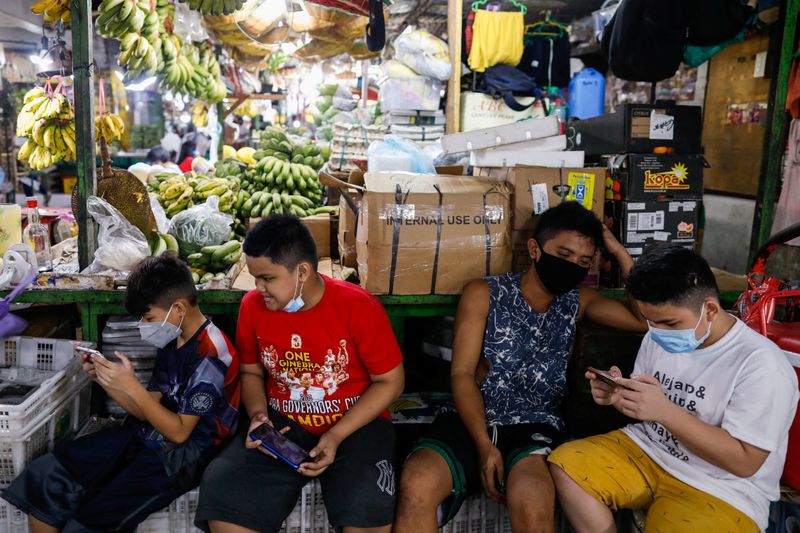By Neil Jerome Morales and Karen Lema
MANILA (Reuters) - The Philippines stock market tumbled on Monday after the government reimposed coronavirus lockdown measures in and around Manila in response to fresh outbreaks, dashing hopes of a swifter economic recovery.
The restrictions, due to take effect from Tuesday, are being reinstated after a group of doctors and nurses warned that the healthcare system could collapse as a result of surging COVID-19 cases.
"It's a bitter but necessary pill given the plight of our medical frontliners," said Francis Lim, president of the Management Association of the Philippines. "We hope the government will deep dive into our COVID-19 strategy and find more effective ways to execute it."
The Philippine economy had been one of Asia's fastest growing before the pandemic but is now on the brink of recession. The main stock index (PSI) fell as much as 3.9% on Monday, its lowest in more than two months.
Quarterly growth data is due on Thursday and economists expect a deeper contraction compared with the 0.2% contraction decline in the first quarter as the pandemic-induced lockdown shuttered businesses and sapped domestic consumption, a main driver of growth.
"We reiterate that the Philippines is indeed headed into a severe crash landing with the probability of the economy returning to its former glory any time soon now declining by the day," said Nicholas Mapa, economist at ING bank.
The country recorded a single-day record of 5,032 new infections on Sunday, taking total confirmed cases of COVID-19 to around 103,000.
Case numbers have grown exponentially since authorities relaxed a previous lockdown in June and the Philippines is now close to overtaking Indonesia as the country with the highest number of infections in Southeast Asia.
The government announced late on Sunday it was placing metro Manila and nearby provinces such as Laguna, Cavite, Rizal and Bulacan under so-called "Modified Enhanced Community Quarantine" for two weeks from Tuesday.
Public transport will be barred, working from home will be instituted where possible, and only one person per household allowed out for essential goods.
